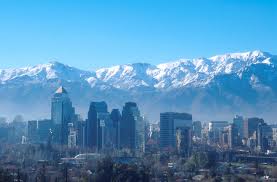There are possible solutions, within a system-of-government framework not unlike our own (i.e. presidential, bicameral, republican, more-or-less two-party), to the never-ending U.S. deficit/budget crisis. Why is it that the best, clearest explanation of these budget options comes not in any recent news article on the topic of the actual budget/deficit situation, but in a discussion of how Chile, in contrast, seems to have gotten things “right”? Despite the “Great Recession,” the country is currently still running an underlying structural budget surplus!
I found the article fascinating, extraordinarily clear, and refreshing – I very much recommend it. Despite being posted on an economics blog, it’s entirely accessible to those unversed in the obscurities of the dismal science. The blog’s author, economist Ed Dolan, summarizes:
The centerpiece of Chilean fiscal policy is a balanced budget rule of a much more sophisticated variety than the one endorsed last week [relative to timestamp on blog post: 2011-07-24] by the U.S. House of Representatives. The House bill calls for strict year-to-year balance of total receipts and outlays, whereas Chile’s rule requires annual balance of the structural budget. The two are not at all the same.
I suppose it’s very possible that, in a month, or a year, or a decade, we’ll see some collapse of the Chilean polity, putting a lie to its current apparent functionality (as opposed to the U.S. dysfunctionality). Recent geopolitical developments have certainly been full of interesting surprises. But based on my own time in Chile, back in 1994 (when the dictatorship was still quite fresh in everyone’s mind), there was something about the way that country had emerged from its recent political/economic trauma with a sort of “never again” resolve that impressed me profoundly.
 Chile is not devoid of problems – the recent clashes between the new, conservative Piñera government and student protesters is a good example of the kind of tensions found there. And like most “tiger”-type, neoliberal economies (including my current home, South Korea), it has huge difficulties balancing economic growth with unequal distribution of wealth and difficult-to-eliminate structural corruption. But having traveled extensively in the world, Chile remains at the very top of my list of favorite places, and though I haven’t been back since 1994, hopefully someday I’ll get back there.
Chile is not devoid of problems – the recent clashes between the new, conservative Piñera government and student protesters is a good example of the kind of tensions found there. And like most “tiger”-type, neoliberal economies (including my current home, South Korea), it has huge difficulties balancing economic growth with unequal distribution of wealth and difficult-to-eliminate structural corruption. But having traveled extensively in the world, Chile remains at the very top of my list of favorite places, and though I haven’t been back since 1994, hopefully someday I’ll get back there.
Unlike anywhere else I’ve been in Latin America, in Chile I never had any feeling of impending anarchy, I had no sense that authority is inherently not-to-be-trusted – indeed, one of the striking things in the way that Chileans talked to me about the dictatorship and social unrest of the 70’s and 80’s was that they all deemed it to have been so exceptional vis-a-vis the “normal” Chilean national character. If you study the country’s history, you quickly realize this is, largely, self-mythologizing – but that doesn’t invalidate it as a national self-perception. In fact, it makes it all the more remarkable. It is such a contrast to the way dictatorships and official corruption seem to perceived in most of Latin America, where these things are always taken as “well that’s just the way things always are.” In that way, Chile always felt “first world” to me, despite lacking that “first world” level of general prosperity.
In other Chile-related news, I recently read that the town of Arica, in the desert north of Chile, recently received 6 millimeters of rain – a typical amount for an hour or two on a summer’s day in Seoul – and set a new record for most precipitation ever. Arica is notoriously the driest place on earth, with some outlying areas having no recorded precipitation in all of history.
